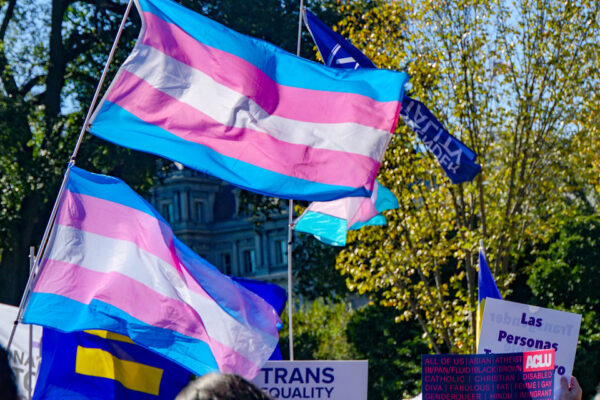An Administrative Law Judge with the Montana Department of Labor and Industry today found that Yellowstone County unlawfully discriminated against a transgender woman during her time as an employee with Yellowstone County. According to the ruling, gender identity is protected by the Montana Human Rights Act. Building on the U.S. Supreme Court’s recent ruling in Stephens v. Harris Funeral Home, the Court found health care plans cannot categorically exclude coverage for gender affirming care, meaning that an employer may not deny medically necessary health care to employees solely because of their transgender status.
The Court held: “the Plan’s ‘sexual reassignment’ exclusion violates the MHRA because it denies coverage to those of transgender status on the basis of sex.”
Eleanor Andersen Maloney, a transgender woman, filed a complaint with the Montana Human Rights Bureau in 2018 claiming she was denied gender-affirming healthcare under Yellowstone County’s Health Insurance Plan when she was employed by the county. Yellowstone County’s health plan singles out transgender employees for unequal treatment by categorically excluding all coverage for medically necessary gender affirming care. The County had denied all of her requests, and even denied payments for Eleanor’s therapeutic counseling - a service that was covered until the County found out that the sessions were for treatment of gender dysphoria.
“I was denied medically necessary coverage because of an outdated and discriminatory insurance practice,” said Eleanor Andersen Maloney. “It hurts to be treated differently just because of who you are. I stood up because the County was wrong to single me out because I am transgender. I am proud I can take part in advancing basic civil rights and accessing health care for queer Montanans.”
According to today’s ground-breaking ruling, Yellowstone County illegally discriminated against Eleanor based on her transgender status. Eleanor belongs to a protected class on the basis of her sex. This is the first case in Montana to affirm clearly and unequivocally that the Montana Human Rights Act statutes protect transgender and non-binary individuals. This means that transgender and non-binary Montanans are protected against discrimination in employment, public accommodations, housing, education and finance.
“This ruling is a huge step on a long road to end all types of discrimination against transgender and non-binary people in Montana and ensure that they feel safe and welcome in Montana’s communities,” said Alex Rate, ACLU of Montana Legal Director. “Nobody should be discriminated against because of who they are.”
As a result of the transgender health care exclusion, Eleanor was forced to resign from her position in Yellowstone County as Senior Deputy County Attorney, where she prosecuted child abuse and neglect cases, on June 18, 2018. She had been employed with the County since Feb. 13, 2017. She has since found a different job that has an insurance plan that does not discriminate.
The federal government has not contracted with insurers that exclude care for transgender employees since Jan. 1, 2016, because those exclusions are unlawful. Twenty states, in addition the District of Columbia, have also issued guidance confirming that such exclusions are discriminatory and unlawful. Montana’s Medicaid policy explicitly covers gender-affirming health care for transgender people.
Recently, the Trump administration has been pushing to remove protections for transgender people. In June, the United States Supreme Court ruled that it is against the law to fire somebody for being LGBTQ. Even with the outcome of that case protecting equal rights for LGBTQ people, Montana's constitution provides independent protections, including an explicit right to individual dignity.
“Transgender, nonbinary, and two-spirit Montanans are an integral part of our community, and deserve to be protected from discrimination,” said Elizabeth Ehret, one of Eleanor’s attorneys. “This victory is a fabulous, long-awaited step towards achieving equality both in Montana and across the nation.”

